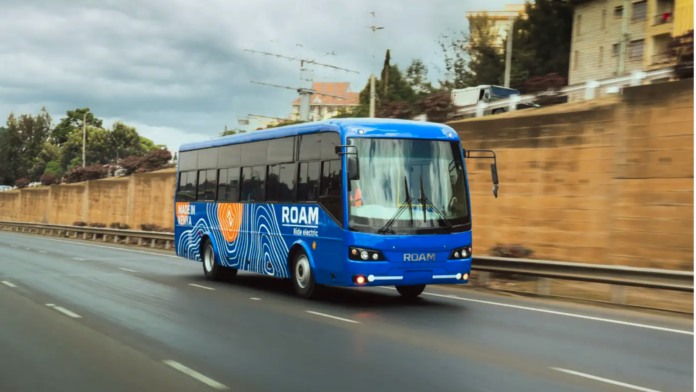In a significant push towards sustainable transportation in Kenya, Roam, an electric vehicle (EV) startup, has successfully secured $24 million in a Series A funding round. This infusion of capital, inclusive of a noteworthy up to $10 million debt commitment from the U.S International Development Finance Corporation (DFC), is earmarked for scaling up the production of electric motorcycles and buses, signaling a bold stride in Africa’s climate tech venture.
Spearheaded by Equator, an Africa-focused climate tech VC fund, this round saw a coalition of investors such as At One Ventures, TES Ventures, Renew Capital, The World We Want, and One Small Planet rallying behind Roam’s vision. This collective investment underscores a growing confidence in the potential of electric mobility to redefine Kenya’s transport sector.
Roam’s journey into electric mobility began in 2017, founded on the pioneering spirit of Albin Wilson, Filip Lövström, and Mikael Gånge. Initially diving into EV conversions, the startup’s pivot to assembling its own models in 2021—fueled by substantial VC support—marked a new chapter in its mission to electrify Kenya’s roads.
The company has been rapidly advancing its production capabilities, recently inaugurating a larger motorcycle assembly plant and launching the Move bus model. “Our aim is to hit a production rate of 1,000 motorcycles a month,” stated Albin Wilson, Roam’s chief product and strategy officer. This ambitious target is part of Roam’s strategy to saturate the market with sustainable transportation options, catering to the burgeoning demand for electric mobility.
Roam’s innovation extends beyond mere assembly. The startup has developed a hybrid solution for its motorcycle users, offering the convenience of charging batteries at home or at swap stations, a testament to its commitment to customer-centric solutions.
The Move buses, capable of seating 42 passengers and covering 200 kilometers on a single charge, are assembled in Kenya with parts sourced from China. Designed with local conditions in mind, these buses boast high ground clearances, catering specifically to the needs of schools and public transit. Roam’s approach to vehicle design emphasizes adaptability and resilience, ensuring that its products are well-suited to Kenya’s unique transportation landscape.
Beyond manufacturing, Roam is also investing in research and tooling to deepen the vertical integration of its products. “We’re moving towards owning more designs rather than relying on off-the-shelf components,” Wilson explained. This strategy aims to reduce dependency on suppliers, ultimately making electric vehicles more affordable and accessible to the Kenyan market.
Despite challenges such as weak electricity grids, limited charging infrastructure, and high EV acquisition costs, the push for electric vehicles in Africa gains momentum. Startups like BasiGo and Ampersand are leading the charge, introducing electric mass transport buses and expanding networks of battery swapping stations in Kenya and Rwanda, respectively.
The landscape of electric mobility in Africa is vibrant, with startups like Kiri EV, Arc Ride, Ebee, and Spiro pioneering new EV motorcycle brands and battery swapping networks. The sector’s dynamism is attracting sustained investor interest, reflecting a growing recognition of the critical role electric vehicles play in addressing climate change and transforming transportation across the continent.





